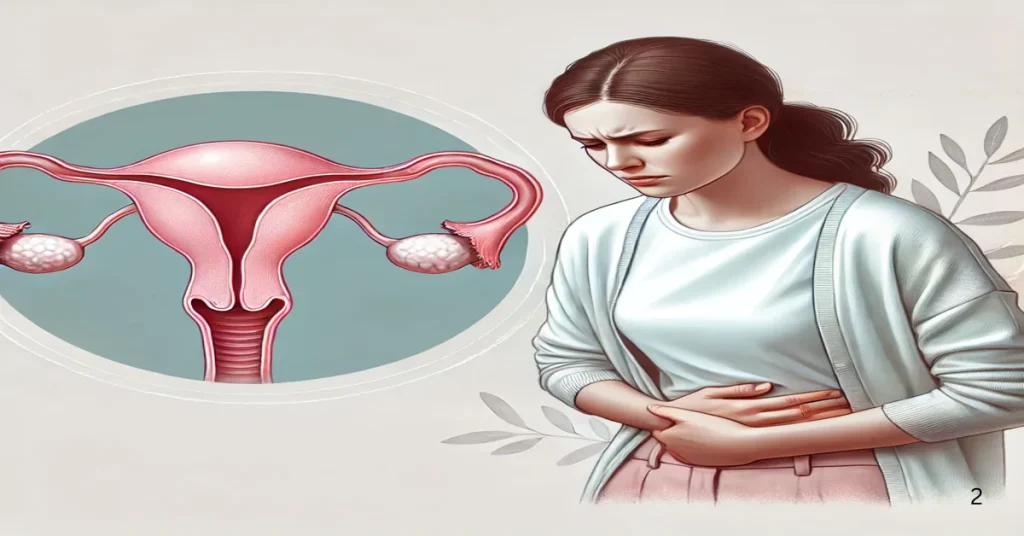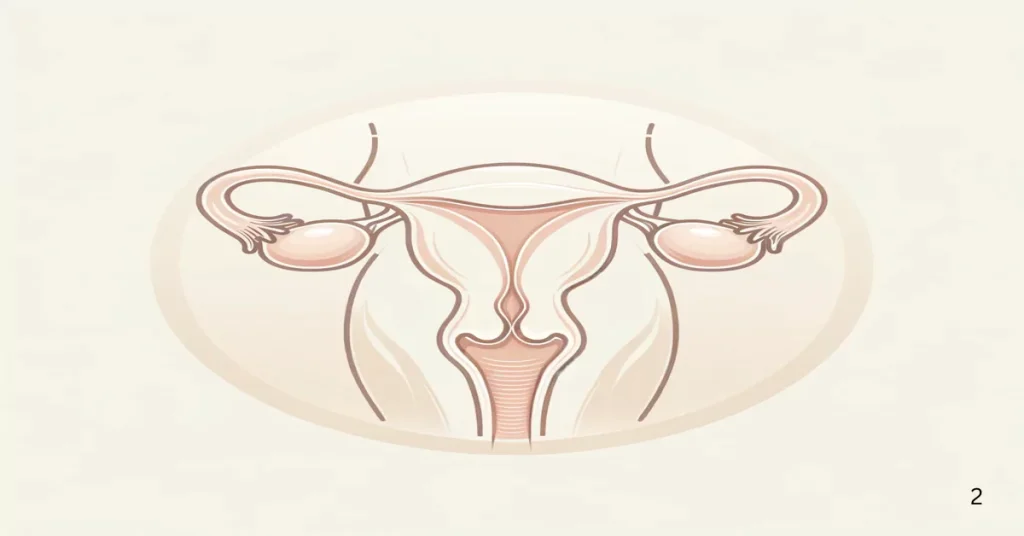Polycystic Ovary Syndrome (PCOS) is a common hormonal condition that affects millions of women worldwide. It can have a significant impact on various aspects of a woman’s reproductive health, including fertility. For women diagnosed with PCOS, egg freezing has become a popular option to preserve fertility. However, understanding how PCOS influences egg freezing is crucial for making informed decisions.
In this comprehensive guide, we’ll explore how PCOS affects egg freezing, the challenges it presents, and expert advice on navigating this important fertility preservation option. By the end of this article, you’ll have a clear understanding of how PCOS affects your fertility options and what steps you can take to improve your chances.
Table of Contents
ToggleWhat is PCOS?
PCOS is a complex hormonal condition that affects the ovaries and menstrual cycle. It’s characterized by irregular periods, high androgen levels (male hormones like testosterone), and multiple ovary cysts. Women with PCOS may also experience symptoms like acne, excessive hair growth (hirsutism), thinning hair, and difficulty losing weight.
PCOS is one of the leading causes of infertility, affecting about 5–10% of women of reproductive age. While the condition can be managed with medical treatment, many women with PCOS face challenges when it comes to conceiving naturally.
How PCOS Affects Egg Freezing

Egg freezing, or oocyte cryopreservation, is the process of retrieving eggs, freezing them, and storing them for future use. It’s an option for women who want to preserve their fertility but are not yet ready to have children. While this process can be an effective fertility preservation option, it’s essential to understand how PCOS affects egg freezing, as the hormonal imbalance associated with PCOS can create unique challenges.
1. Higher Ovarian Reserve but Lower Egg Quality
Women with PCOS typically have a higher ovarian reserve, which means they have more eggs available for retrieval. This is an advantage, as a more significant number of eggs increases the potential for successful retrieval. However, this does not necessarily guarantee success. In many cases, women with PCOS may have lower-quality eggs despite having a higher quantity.
Why does this happen?
The hormonal imbalance associated with PCOS—particularly the high levels of androgens (male hormones)—can prevent eggs from maturing properly. While there may be many follicles (the sacs that contain eggs), many of these may contain immature or poor-quality eggs that are not viable for fertilization.
This is why women with PCOS may need multiple egg retrieval cycles to gather a sufficient number of mature eggs. Though the quantity may be high, the quality of eggs may still be compromised. Studies show that egg quality can decline with age, regardless of whether a woman has PCOS, so timing is essential.
2. Response to Fertility Medications
One of the biggest challenges for women with PCOS undergoing egg freezing is their response to fertility medications. During egg retrieval, a woman is given medication to stimulate the ovaries to produce multiple eggs. However, women with PCOS often have an exaggerated response to these medications because they already have a more significant number of follicles. This can lead to Ovarian Hyperstimulation Syndrome (OHSS), a condition where the ovaries become swollen and painful.
What is OHSS?
OHSS can cause symptoms like bloating, nausea, and abdominal pain, and in severe cases, it can lead to complications such as dehydration or kidney failure. Since women with PCOS have more follicles, they are at an increased risk of developing OHSS.
Managing OHSS risk
To reduce the risk of OHSS, fertility specialists closely monitor hormone levels during the treatment cycle and adjust medication dosages accordingly. In some cases, doctors may recommend freezing embryos (fertilized eggs) instead of freezing unfertilized eggs, as embryos are less likely to cause OHSS than unfertilized eggs.
3. Egg Maturity and Retrieval
During the egg retrieval process, the goal is to collect mature eggs ready for fertilization. However, for women with PCOS, many of the retrieved eggs may not be mature enough to be successfully fertilized. Hormonal imbalances can disrupt the natural maturation process.
As a result, even though a woman with PCOS may produce many eggs, only a fraction of them will be fully mature and viable for fertilization. In some cases, embryo freezing (where the egg is fertilized before freezing) may be recommended, as it allows the fertility clinic to assess the quality of the egg before freezing it.
Key Factors for Successful Egg Freezing in Women with PCOS
While there are challenges associated with egg freezing for women with PCOS, many women have successfully frozen their eggs and gone on to have healthy pregnancies. To increase the chances of success, here are some essential factors to consider:
1. Age and Timing: The Younger, the Better
While PCOS may offer more eggs, age remains one of the most significant factors affecting egg quality. The earlier you freeze your eggs, the better the chances of collecting healthy, high-quality eggs. Women under 35 generally have the best success rates for egg freezing, so if you’re considering egg freezing, it’s recommended to do so while you’re still in your 20s or early 30s.
2. Work with a Fertility Specialist Experienced in PCOS
Not all fertility clinics are equipped to handle the unique challenges of PCOS. It’s essential to choose a clinic with expertise in treating women with PCOS. Look for clinics with a high success rate in PCOS egg retrieval and freezing, and make sure the fertility specialists are familiar with PCOS-specific treatment protocols.
Fertility specialists can personalize your treatment plan based on your response to medication, your ovarian reserve, and your specific goals. They will closely monitor your progress during the stimulation phase and make adjustments as needed to maximize the quality of your eggs.
3. Careful Monitoring and Tailored Medication
Careful monitoring of hormone levels and follicle development is crucial during egg freezing. Fertility clinics perform blood tests and ultrasounds to track how your ovaries are responding to medication. This helps doctors adjust the medication and ensure that you’re not overstimulated, which could lead to complications like OHSS.
Some women with PCOS may need a more customized treatment approach, such as using a lower dose of fertility medication to control the response of their ovaries and prevent overstimulation.
4. Healthy Lifestyle Habits Matter
Your lifestyle plays an essential role in the success of egg freezing. Women with PCOS who maintain a healthy weight, follow a balanced diet, and manage stress are more likely to have better responses to fertility medications. Additionally, some women with PCOS may benefit from drugs that help regulate insulin levels, which can improve the quality of their eggs.
Exercise, a balanced diet rich in whole foods, and stress management techniques like yoga or meditation can help support hormonal balance, which is crucial for successful fertility treatments.
Success Rates of Egg Freezing for Women with PCOS

The success of egg freezing largely depends on factors such as the woman’s age, ovarian reserve, and the number of eggs retrieved. Women with PCOS typically produce a higher number of eggs per cycle, but the quality of those eggs may vary.
For women under 35, egg-freezing success rates range from 40% to 60%, depending on the individual’s health, ovarian reserve, and other factors. If you’re considering egg freezing and you have PCOS, keep in mind that your age and health will play a significant role in your chances of success.
Conclusion
Egg freezing can be an excellent option for women with PCOS who want to preserve their fertility for the future. While the process may involve some extra challenges—such as higher ovarian reserve but potentially lower egg quality—many women with PCOS have successfully frozen their eggs and gone on to have children.
The key to success is early intervention, working with an experienced fertility specialist, and following a personalized treatment plan. If you’re considering egg freezing, consult a fertility expert who can guide you through the process and help maximize your chances of success.
By understanding how PCOS affects egg freezing, you can make more informed decisions about your reproductive future. Remember, the earlier you take action, the better your chances of freezing healthy eggs that can be used later to fulfil your dreams of having a family.
FAQS
How does PCOS affect egg freezing?
PCOS can impact egg freezing by increasing the number of eggs available but often decreasing egg quality. Women with PCOS typically have a higher ovarian reserve, but hormonal imbalances may prevent many eggs from maturing properly. This can require multiple egg retrieval cycles for the best chances of success.
Is egg freezing a good option for women with PCOS?
Yes, egg freezing can be a viable option for women with PCOS, especially if they wish to preserve fertility for the future. However, it’s essential to consult a fertility specialist to understand your situation. Women with PCOS may need to undergo multiple cycles to collect sufficient mature eggs, and the timing of egg freezing is crucial.
What challenges do women with PCOS face when freezing eggs?
Women with PCOS often face challenges such as an exaggerated response to fertility medications, which can increase the risk of Ovarian Hyperstimulation Syndrome (OHSS). Additionally, while women with PCOS may have many eggs, they might struggle with lower egg quality due to hormonal imbalances, which can affect fertility outcomes.
Can women with PCOS still produce healthy eggs for freezing?
Yes, women with PCOS can still produce healthy eggs, but the quality may be lower compared to women without the condition. Fertility clinics can help optimize egg retrieval through careful monitoring, customized medication, and a personalized treatment plan to improve egg quality.
How does age impact egg freezing for women with PCOS?
Age is a significant factor in egg-freezing success, even for women with PCOS. The younger you are, the better the chances of retrieving high-quality eggs. Women under 35 tend to have the highest success rates for egg freezing, as egg quality declines with age, regardless of PCOS.






